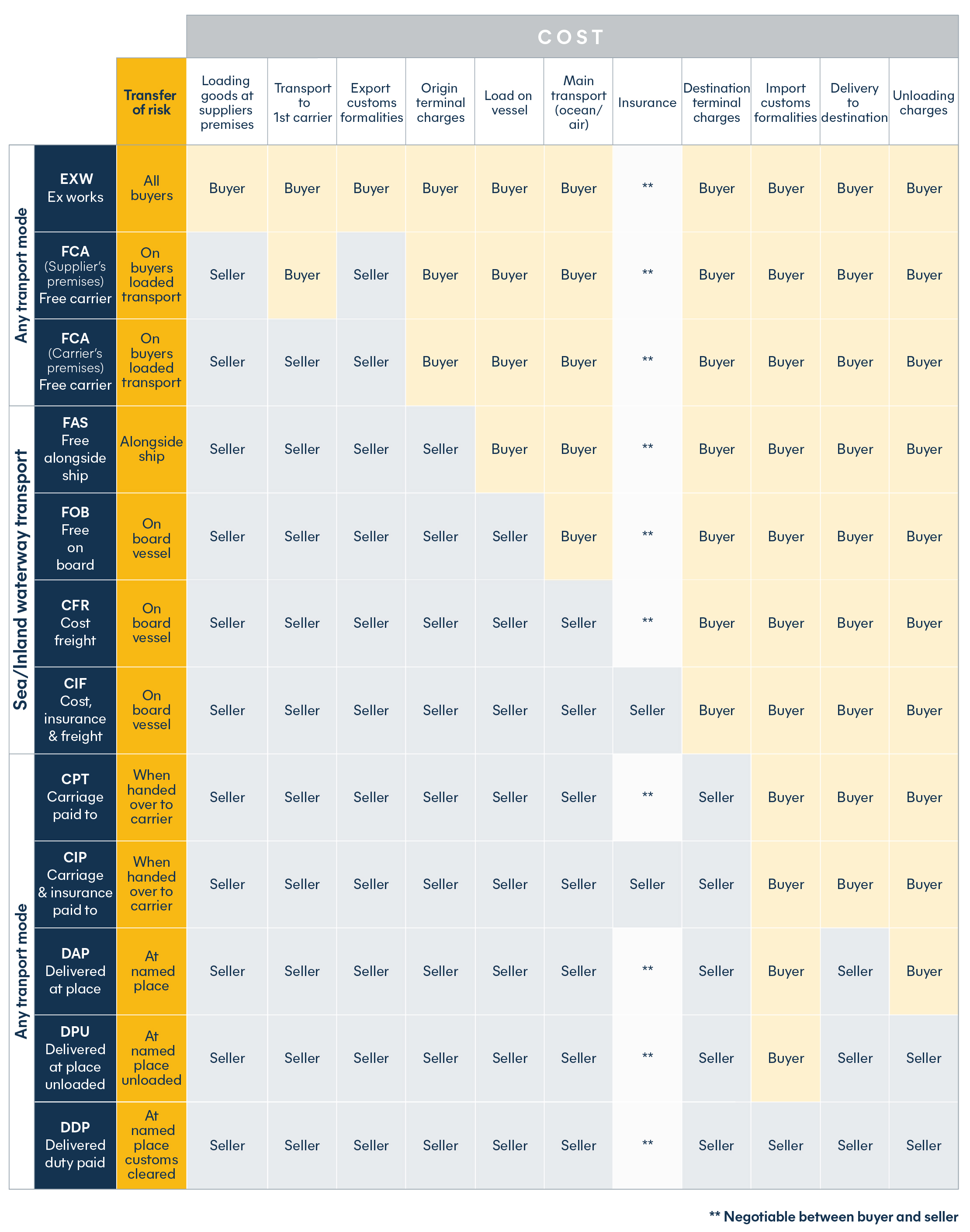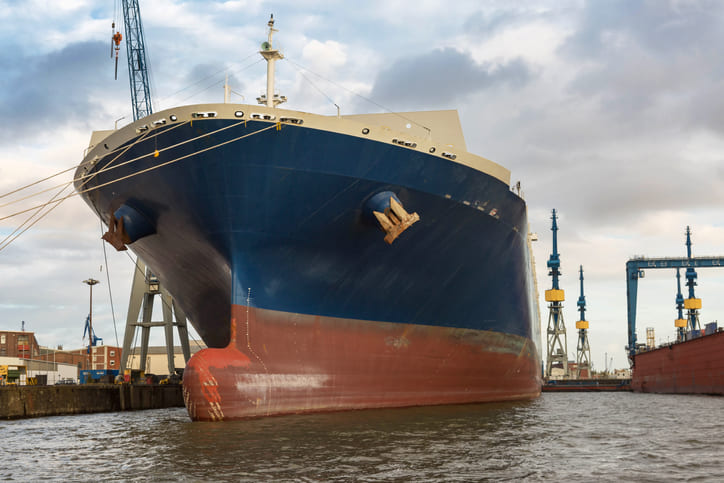Incoterms 2020: Has there been a change to Incoterms in 2023?
As the international business landscape becomes increasingly competitive, understanding the rules of international trade is essential to staying ahead.
Incoterms 2020 are a set of 11 rules set by the International Chamber of Commerce (ICC) that establish the responsibilities of buyers and sellers in global transactions. In this article, we'll explain what the rules of Incoterms 2020 mean and how they can help you succeed in the global marketplace.
What is an Incoterm?
The International Chamber of Commerce (ICC) sets out the rules for where the responsibility and liability associated with domestic and international shipping is assigned.
These rules are called “Incoterm rules” and sometimes referred to as “terms of sale” or “terms of trade.”
They govern three areas:
- Transfer of risk
- Transfer of cost
- Obligations of seller and buyer
Is there an Incoterms® 2023?
On 1st January 2020, the ICC implemented a revised set of rules, Incoterms® 2020. These changes will remain in effect for 2020 and beyond until the ICC publishes the next set of revisions. So the Incoterms® 2023 we use are actually under the Incoterms® 2020 revision.
Why are Incoterms® important?
Before negotiating the sales contract, importers and exporters should carefully evaluate which incoterms best suit their needs.
Selecting the most appropriate incoterms® for a seamless and efficient trade process is crucial. Incoterms serve as a reference to clarify the obligations of all parties involved in the trade.
They also ensure that everyone is on the same page when it comes to trading activities. Without them, you may face costly delays or misunderstandings due to varying interpretations of international terms.
Additionally, they can help you avoid disagreements over who is liable for any damages caused during shipment. With Incoterms®, all parties understand which costs must be paid by whom.
When booking a shipment, please indicate clearly on your purchase order whether the 2020 rules or a previous version applies.
Difference between Incoterms® 2020 and Incoterms® 2010
The two principal changes in Incoterm 2020 versus 2010 are the following:
Delivered at Terminal (DAT) has been changed to Delivered at Place Unloaded (DPU) to clarify that the place of final delivery is not necessarily a “terminal”.
Carriage and insurance paid to (CIP) now requires that the insurance subscribed by the seller to cover the buyer's risk during transport should conform to The Institute Cargo Clauses A. This corresponds to what is commonly referred to as "All risks, subject to itemized exclusions".
Other changes include:
In case of free carrier (FCA) terms, the buyer and seller may agree that the buyer instruct its carrier to issue an “on board” Bill of Lading to the seller after the loading of the products
Inclusion of security-related requirements within carriage obligation and costs
Incoterm rules FCA, delivered at place (DAP), DPU, delivered duty paid (DDP), now take into consideration that the buyer or seller may arrange carriage using their own vehicles, rather than contracting with a third-party carrier
Understanding Incoterm rules
All Incoterm rules are associated with a named place or point.
According to which Incoterm rule is used, the named place will correspond either to the “place of delivery” or to the “place of destination”:
Place of delivery: the risk transfers from buyer to seller, which will not necessarily be the same as the final point of delivery as discussed with your freight forwarder
Place of destination: the final location where the products will be transported to as discussed with your freight forwarder
How do these two key notions apply to the different Incoterm rules?
Types of Incoterms®
Here is an overview of the different types of Incoterms®.

EXW, FCA, FOB, FAS
Example: FOB Rotterdam. Rotterdam, as named place, is the “place of delivery” where the transfer of risk occurs between seller and buyer.
CIP, CPT, CFR and CIF
Example: CPT New York. New York, as named place, will be the “place of destination” to which seller must contract carriage. Place of delivery (“transfer of risk”) will be the place where the seller hands over the products to the contracted carrier at origin.
DAP, DPU and DDP
Example: DAP Chicago. Chicago, as named place, will be both the “place of delivery” (transfer of risk) and “place of destination” (place to which the seller must contract carriage)
The complete Incoterm® rules can be obtained from the ICC. You can also download Hillebrand Gori’s Incoterms® 2020 guide to help you understand the differences between each incoterm and identify which one best suits your shipment.
Incoterms® 2020: How Hillebrand Gori can help you
Our team’s deep understanding of international trade laws and regulations will ensure that all shipments are in compliance. Contact us to learn more about how we can assist you.
Published 17th December 2019, updated 02nd February 2024
The Incoterms® are classified into four main categories: E (departure), F (main carriage unpaid), C (main carriage paid), and D (arrival). This classification system facilitates clear communication and understanding in international trade transactions.
No, Incoterms® are updated every 10 years to reflect the changing global trade landscape. The most recent version is Incoterms® 2020.
No, Incoterms must be specifically incorporated into a contract between buyer and seller.
No, Incoterms aren’t a substitute for shipment documentation such as bills of lading. They provide additional information to determine which party assumes the risk when transporting goods.

.png?sfvrsn=8b96de7e_1)



